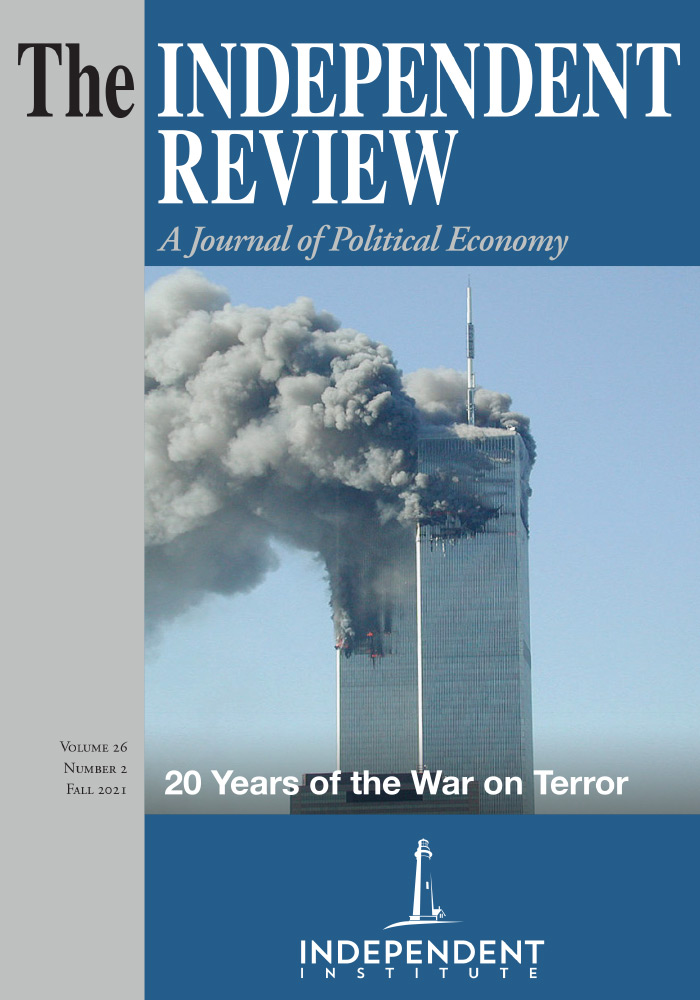In the wake of the 9/11 attacks, the U.S. government expanded its domestic police powers on the grounds of protecting the person, property, and liberties of U.S. citizens. Many of these expanded police-state powers persist today. This paper explores how a constitutionally constrained democratic government can take on police-state powers that sustain themselves over time and catalogs some police-state powers implemented after the 9/11 attacks that have persisted—including surveillance activities, militarization of the police, civil asset forfeiture, expanded border patrol, and the no fly list.
Christopher J. Coyne is a Senior Fellow at the Independent Institute, Professor of Economics at George Mason University, and Co-Editor of The Independent Review. He is the author of the new book, In Search of Monsters to Destroy: The Folly of American Empire and the Paths to Peace.
Yuliya Yatsyshina is program manager in the F. A. Hayek Program for Advanced Study in Philosophy, Politics, and Economics at the Mercatus Center, George Mason University.
AfghanistanCivil Liberties and Human RightsConstitutional LawDefense and Foreign PolicyIraqLaw and LibertyPolicingTerrorism and Homeland Security
| Other Independent Review articles by Christopher J. Coyne | ||
| Spring 2024 | Murray Rothbard on War and Foreign Policy | |
| Fall 2023 | Kenneth Boulding: Knowledge, Conflict, and Power | |
| Summer 2023 | A Symposium on Gene Sharp’s The Politics of Nonviolent Action | |
| [View All (46)] | ||
| Other Independent Review articles by Yuliya Yatsyshina | |
| Spring 2024 | Murray Rothbard on War and Foreign Policy |










